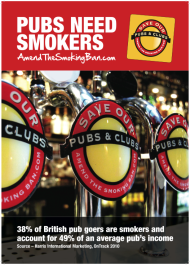A very British protest
 Saturday, January 26, 2008
Saturday, January 26, 2008 Following a meeting at the ICA in London yesterday, I took advantage of the bright winter sunshine and walked to Green Park station via Lower Regent Street and Piccadilly. As I approached The Ritz Hotel in Piccadilly I couldn't help noticing, on the other side of the road, the West End branch of Aeroflot, the state-owned Russian airline. Twenty-four years ago this very office was the scene of a most unlikely demonstration. I should know because I was there. In fact, it was my idea.
At the time I was the British representative for a Frankfurt-based human rights group whose primary interest was supporting Russian dissidents and re-uniting German families separated by the Berlin Wall. In 1984 the most prominent Soviet dissident was Andrei Sakharov. Dr Sakharov, a Nobel Peace Prize winner in 1975, had been exiled to the closed city of Gorky (now Nizhny Novgorod) after criticising the Soviet war on Afghanistan.
It seemed a good idea to demonstrate on his behalf. The Soviet embassy in Kensington was too well guarded so we decided to stage our protest at the next best thing - the London office of Aeroflot. There were just eight, possibly ten, of us, but everything was meticulously planned. We did our homework, noted the big plate glass window at the front of the building, and decided that the best thing to do was to demonstrate inside the building where we could nevertheless be seen by passers-by and the massed ranks of journalists and broadcasters who, naturally, would be there to record every second of this hugely important event.
We hired Soviet military uniforms from a theatrical costume shop in Camden (recommended by a friend who worked for the BBC); we made posters and banners; we even hired a beaten-up Ford Transit (no windows, no seats) to get us to our destination - in uniform - without being seen. We were deadly serious but we were also crying with laughter as we crouched in the back of that van as it crawled up Whitehall, past Trafalgar Square and on to Piccadilly.
At 11.00am precisely two "customers" walked nonchantly into the London office of Aeroflot and sidled up to the counter. The "plan" was to keep staff occupied with questions like "How do I get to Tokyo via Moscow?" and "Is it cheaper to fly to Washington via Leningrad?". It worked. Staff were sufficiently distracted they failed to notice - until it was too late - that a slightly larger group of people had also entered the building and were now standing in the window waving placards while bellowing their support for someone they had never met and knew very little about.
The police were called, but here's the funny bit. Today you might expect a crack team of armed officers to be on the scene within minutes. In 1984, however, it took at least half an hour for the Met's finest to come to Aeroflot's aid. To be honest, we were slightly disappointed. We wanted the police there pronto to give the protest a bit of an edge. Thirty minutes is a long time. We were beginning to feel a bit stupid. This wasn't going to plan.
But there was a reason for the Met's tardiness. A police officer told me later that when the airline rang 999 Aeroflot staff assured them there was no cause for concern because "They [the demonstrators] seem like very nice people"!!! How British is that?!
Postscript: the demo wasn't a total waste of time. Channel 4 News did in fact send a camera crew and we were featured on the evening news. Flushed with success, several members of our team went on to bigger and better things. One became a hotshot PR director at a leading London hospital; another became a journalist and currently works for the London Evening Standard; a third became an influential apparatchik within the Conservative party; a fourth is a prominent libertarian and an outspoken critic of the EU. And Sakharov? He was allowed to return to Moscow in 1986. In March 1989 he was elected to the new parliament and co-led the democratic opposition. Nine months later, in December 1989, he died of a heart attack, aged 68.
 Protest
Protest 









Reader Comments